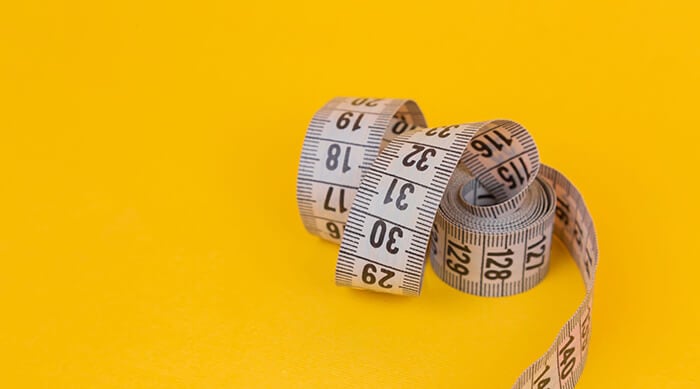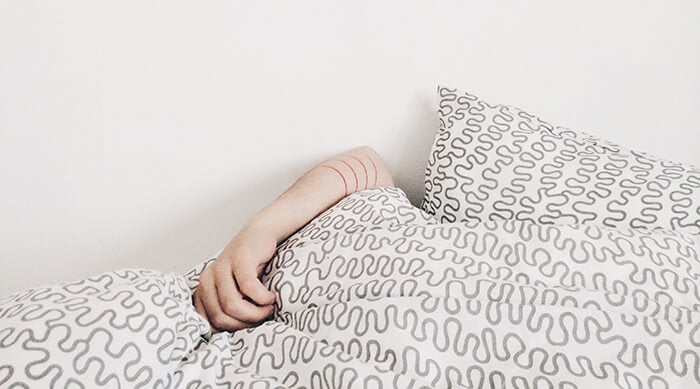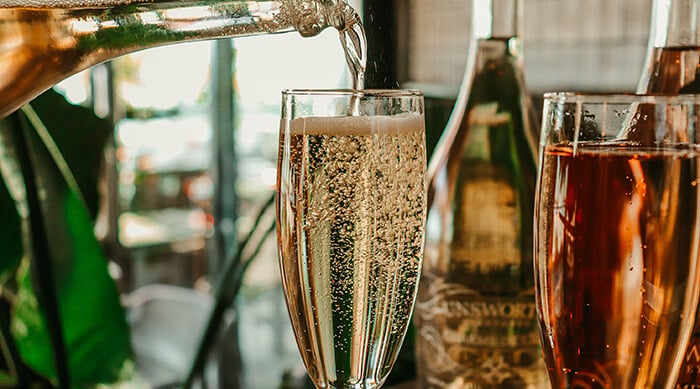Wine doesn’t have to mean weight gain, especially if you’re a wine drinker who enjoys just an occasional glass. If you’re trying to lose weight, you don’t necessarily have to cut wine out of your diet completely.
You just need to be smart about your wine consumption.
Can I drink wine and still lose weight? You can drink wine and still lose weight if you drink wine in moderation.
The same is true for most alcohol consumption. The more you drink, the more calories you consume. The good news is that a glass of wine is better for you overall than most alcoholic beverages.
Some research even suggests that a moderate amount of wine can help reduce your body weight.
Table of Contents
Wine Nutrition Facts
The nutritional value of a glass of wine can vary quite a bit by varietal, style, and even by the winemaker. Generally, red wines offer more health benefits, while dry sparkling and white wines are the lowest in calories.
Let’s look at wine’s basic nutrition facts since you likely won’t catch all of that information on a wine label.
Carbs
Wine is lower in carbohydrates than most beers, ciders, and mixed drinks. Red wine is best if you’re on a low-carb diet like keto, as you get a higher dose of antioxidants with each sip. Most consider an occasional glass of wine fine on the paleo diet, too.
Popular red wine varietals have between 3.4-4 grams of carbs in a 5 oz serving. Dry rosé and white wines like pinot grigio or sauvignon blanc typically have even fewer carbs, with less than 3 grams per serving. There are plenty of low-carb wine options if you’re counting macros.
Calories
How many calories are in a glass of wine? Most red wines have between 120-125 calories per 5 oz serving. Most dry white wines have slightly fewer calories per ounce. Wine calories vary by varietal. Here’s a cheat sheet for a few popular wines:
- Prosecco: 98 calories
- Sauvignon blanc: 119 calories
- Pinot noir: 121 calories
- Merlot: 122 calories
- Chardonnay: 123 calories
- Rosé: 125 calories
Alcohol calories are typically considered empty calories. That means the extra calories you consume by drinking alcohol don’t offer much nutritional value.
Wine’s built-in antioxidants put it above beer and other types of alcohol when it comes to positive health benefits, but we’ll get into that in a minute.
Serving size matters, too.
You’ll see us mention that 5-ounce glass of wine often. The Centers for Disease Control and Prevention (CDC) set that standard serving size. If you’re drinking wine with a high alcohol by volume (ABV), a smaller serving size will reduce your alcohol intake.
One more fun fact on calories before we move on: Surely’s non-alcoholic wines have about 30 calories per serving. Nope, we didn’t miss a digit there. Many of the calories in wine come from the alcohol. Take out the booze, and you have a low-calorie beverage.
Sugar
The residual sugar content in wine varies. A low-sugar bottle of wine is best if you’re watching your calories because high-sugar wines usually mean a higher calorie count. Go for dry red, white, and sparkling wines. Avoid dessert wines, sweet wines, and lower-quality options.
Some low-quality winemakers add sugar to their end product before bottling to adjust the taste. You don’t want that if you’re trying to lose weight. Here’s a roundup of sugar content by sweetness level.
| Sweetness | Sugar Content per Bottle | Sugar Content per Glass | Varietals |
| Very dry or bone dry | <1 g | <1 g | Sauvignon Blanc, Lambrusco (secco), Champagne (extra brut) |
| Dry | 1-7 g | <1-1.4 g | Pinot noir, Chardonnay, Cabernet Sauvignon |
| Off-dry | 7-26 g | 1.4-5 g | Gewürztraminer, White Zinfandel, Chenin Blanc |
| Sweet | 26-90 g | 5-18 g | Sweet Rosé styles, e.g. Pink Moscato, Sweet Riesling |
| Very sweet | 90-165 g | 18-33 g | Sauternes, Port, Ice Wine |
Antioxidants
If you’ve read anything about the health benefits of wine, you know all about an antioxidant called resveratrol in red wines. Some winemakers even try to enhance the antioxidants in their wines to offer their bottles as functional wines.
It makes sense. Resveratrol is linked to decreased rates of heart disease, contains anti-aging properties, and may even help you lose weight.
It’s true. Some studies show that resveratrol may be linked to reduced obesity rates.
Keep in mind that as your alcohol use increases, the health benefits decrease. And you can get resveratrol from eating diet-friendly foods high in the antioxidant, like grapes and blueberries. It may not sound as fun — but we’re here for the facts.
How Our Bodies Process Wine
Wine is processed like any other alcohol when it enters the body. Alcohol can’t be stored or used in your body, so your liver prioritizes metabolizing and removing it. Any fats, carbs, or sugars you’ve consumed take a backseat.
When your body prioritizes metabolizing alcohol over the other calories you’ve consumed, it can affect your body’s fat-burning abilities in the long run.
Does alcohol make you gain weight? Alcohol can make you gain weight if you drink heavily.
Wine & Snacking
Another culprit for potential weight gain while drinking is how you handle diet choices when you’ve had too much.
Drinking too much can increase cravings and reduce your ability to make good food choices. We’ve all been there. Late-night tacos or fries are much more likely after a few drinks. Some evidence suggests that drinking can trick you into feeling hungry when you’re not.
It may not all be mental, though. While your liver is processing alcohol, it’s too busy to produce glucose, which impacts blood sugar levels. Feeling hungry is an early sign that your blood sugar is too low. This is one reason it’s important to eat something before enjoying that glass of merlot. It’s a balancing act.
How much weight can wine make you gain? How much weight wine can make you gain depends on your level of wine consumption and any extra calories consumed while drinking.
It can be a simple case of too many calories. For many, the more you drink, the more you eat. That combo can spell disaster for your diet — especially if you like high-calorie snacks.
Wine Belly vs. Beer Belly
Does wine make you gain belly fat? Wine on its own does not cause belly fat when consumed in moderation. Drinking too much wine over time can certainly affect your waistline, but the same is true for any type of alcohol.
The more you drink, the more weight you might gain thanks to excess calories alone. As beer generally has more carbs and calories than wine, you’re better off drinking wine.
If we’re talking about temporary belly bloat, wine and beer can cause your belly to expand. You can thank the yeast in both for that. Your temporary belly boat may also result from too much salt or fatty foods. An elimination diet is a good way to determine the cause of your bloat.
Some studies suggest that drinking red wine, particularly in the evening, can reduce belly fat over time. Unfortunately, these studies often include participants who follow healthy eating plans like the Mediterranean diet, so it can be challenging to pinpoint the real reason for those flat bellies.
Drinking Wine for Weight Loss
You can drink wine in moderation and lose weight, especially if you choose wine varietals that are better for you.
Which wine is best for weight loss? The best wine for weight loss is low in sugar, calories, and alcohol. Dry red wines high in antioxidants are a good option for dieters seeking health benefits from their wine.
Which wines are healthiest?
Dry wines are generally considered the healthiest wines for their low sugar content. They’re not always the lowest in calories, though, and some may be higher in alcohol than you’d like.
Here are a few general tips if you’re seeking varietals low in sugar, calories, or alcohol:
Dry red wines: Dry reds like pinot noir and cabernet sauvignon are low in sugar and high in resveratrol content.
Avoid bold reds like zinfandels and syrahs if you want a lower ABV.
Dry white wines: Chardonnays and pinot grigios are low-sugar white varietals. Crisp, higher-acid sauvignon blanc is a good option if you want fewer calories than most reds. Keep in mind that you’re not getting as much antioxidant activity with white wines.
Avoid sweeter varietals like Moscato and Riesling.
Dry sparkling wines: Dry champagnes and sparkling wines have fewer calories than most wines, although some may have higher alcohol content. If you’re unsure whether a bottle of champagne is dry, look for “brut” on the label.
Avoiding Dietary Pitfalls
If you already drink in moderation, there are ways to improve your chances of sticking to your diet:
- Eat before drinking. It may sound counterintuitive if you’re trying to cut calories, but eating a good meal before drinking wine may keep you from drinking too much. It may also keep you from overeating later. Choose a meal high in protein to keep you fuller longer.
- Stay hydrated. Drink water between each glass of wine if you have more than one. It’ll slow you down, aid your liver, and may help reduce temporary belly bloat while you’re drinking.
- Get creative with your wine calories. Choose mixers that are calorie-free for wine spritzers and festive wine-based cocktails. You’ll consume less alcohol that way. Sparkling wine and flavored zero-calorie sodas work well and taste great.
Drinking Wine in Moderation
Drinking wine in moderation is the key if you want to enjoy an occasional glass of wine and stick with a diet. The type of wine matters less once you get into heavy drinking, not to mention the harmful effects of alcohol if you regularly overdo it.
It’s easy to drink too much once you’ve had more than the recommended amount of wine. Watch those serving sizes and find pleasure in drinking less wine at a time. You may even find that you appreciate wine more that way.
Key Takeaways
Drinking a glass of wine here and there is fine for most healthy adults and most diets. Red wine is the better option over white or sparkling varietals if you want a side of antioxidants with each glass.
Drinking less is better than drinking more, too, and abstaining from alcohol will always be the healthiest choice for weight loss and overall wellness.
If you’re in it for weight loss and want to reduce your calorie intake even further, Surely wine is zero-alcohol, low in calories, and just as delicious as your favorite traditional wines. Looking for that antioxidant boost? Go for our non-alcoholic pinot noir. Prefer white? Our non-alcoholic sauvignon blanc is the perfect summer wine. You can have your wine and your cake if you choose Surely.
Sources
- Red Wine Consumption and Cardiovascular Health
- Resveratrol and red wine, healthy heart and longevity
- The effects of resveratrol intake on weight loss: a systematic review and meta-analysis of randomized controlled trials
- Alcohol and food intake
- Effects of the DASH Diet and Sodium Intake on Bloating: Results From the DASH-Sodium Trial
- Effects of initiating moderate wine intake on abdominal adipose tissue in adults with type 2 diabetes: a 2-year randomized controlled trial




